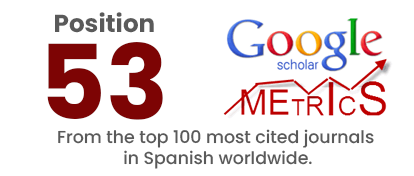Virtual scientific events as spaces for reflection and learning
DOI:
https://doi.org/10.36097/rsan.v1i57.2500Keywords:
Learning, scientific events, reflection, virtuality, Technology of the information and communicationAbstract
The objective of this article is to report the planning process of the event, its design, development, implementation and reflection of the lessons learned in the scientific event held in the context of the 20th Anniversary of the Bachelor's Degree in Education Sciences of the Autonomous University of State of Hidalgo during the COVID-19 pandemic period virtually. It was carried out through the Zoom platform where different scientific activities were developed such as: conferences, book presentations, workshops, discussions and forums. To evaluate the impact of the activities, an online questionnaire was administered to the participants. The results obtained reflect a positive evaluation of the event due to the different activities carried out, as well as the interest in continuing to generate spaces that allow listening to the experience of teachers, students, graduates and national and international guests who address topics related to Sciences. of Education.
Downloads
References
BBotta, F. y Seldes, V. (2020). Reflexiones sobre el impacto del COVID-19 en los eventos científicos. La virtualidad y digitalización de la investigación arqueológica y de la antropología biológica en Argentina. Práctica Arqueológica. Revista de la Asociación de Arqueólogos profesionales de la República de Argentina, 4(1), 77-82. https://doi.org/10.5281/zenodo.4784167
Cabrera, L. (2020). Efectos del coronavirus en el sistema de enseñanza: aumenta la desigualidad de oportunidades educativas en España. Revista de Sociología de la Educación. RASE, 13 (2) Especial, COVID-19, 114-139. http://dx.doi.org/10.7203/RASE.13.2.17125.
Chanchi, G. y Hernández-Londoño, C. E. (2020). Estrategia basada en TIC para la organización de ferias virtuales de divulgación académica durante la pandemia del COVID-19. Revista Espacios, 41(42), 66-80. DOI: 10.48082/espacios-a20v41n42p06
Charnell, A. M. (2020). Will remote events be the ‘new normal’moving beyond the COVID-19 pandemic?. BMJ Mil Health. doi: 10.1136/bmjmilitary-2020-001595 [GS Search]
Estupiñán, J., Domínguez, J.J., Maldonado, R.L. (2020). Integración universitaria. Reto actual en el siglo XXI. Revista Conrado, 16(1), 51-58. https://conrado.ucf.edu.cu/index.php/conrado/article/view/1521/1505
Fernández, A.B. y Balonas, S. (2021). La creatividad en la organización de eventos en la era Covid. Shpera Pública. Revista de Ciencias Sociales y de la Comunicación 21(2), 121-146. https://cutt.ly/RwdDTGT6
Gil Álvarez, J. L., Morales Cruz, M., & Nieto Almeida, L. E. (2020). La gestión universitaria en tiempos de Covid-19: Retos, nuevas prácticas y aprendizajes. Revista Metropolitana de Ciencias Aplicadas, 3(3), 270-277. https://remca.umet.edu.ec/index.php/REMCA/article/view/340
Godino, J. y Contreras, J.M. (2019). Uso de recursos virtuales en la difusión y construcción de conocimiento científico: el caso del congreso VICEOS. Contextos de Educación. 19(26), 1-12. http://www2.hum.unrc.edu.ar/ojs/index.php/contextos/article/view/924
Instituto Internacional para la Educación Superior en América Latina y El Caribe - IESALC (2020). COVID-19 y educación superior: De los efectos inmediatos al día después. Análisis de impactos, respuestas políticas y recomendaciones. http://www.iesalc.unesco.org/wpcontent/uploads/2020/05/COVID-19-ES-130520.pdf
Lechuga, M.A. (2021). El congreso virtual de la Sociedad Interamericana de Psicología 2020: Aportes de la Psicología ante la covid-19. Revista Interamericana de Psicología, 55(3), 1-8. https://doi.org/10.30849/ripijp.v55i3.1754
Martin-Gorgojo, A., Bernabeu-Wittel, J., Linares-Barrios, M., Russo-De la Torre, F., Garcia-Doval, I., & Del Rio-De la Torre, E. (2020). Congreso virtual de dermatología realizado a través de Telegram® durante el confinamiento de la COVID-19: organización y evaluación. Actas Dermo-Sifiliográficas. doi: 10.1016/j.ad.2020.08.009 [GS Search]
Margolis, A., Balmer, J. T., Zimmerman, A., & López-Arredondo, A. (2020). The Extended Congress: Reimagining scientific meetings after the COVID-19 pandemic. MedEdPublish, 9. doi: 10.15694/mep.2020.000128.1 [GS Search]
Margolis, A. (2020). ¿Cómo migrar de un congreso tradicional a un congreso semipresencial o totalmente virtual? Un caso de estudio de éxito frente a la pandemia por COVID-19. Rev.Colom.Nefrol. 7(1), 360-362. http://dx.doi.org/10.22265/acnef.Supl.2.415
Nadarajah, V. D., Er, H. M., & Lilley, P. (2020). Turning Around a Medical Education Conferene: Ottawa 2020 in the time of COVID-19. Medical Education, 54(8), 760-761. https://doi.org/10.1111/medu.14197
Organización de las Naciones Unidas para la Educación, la Ciencia y la Cultura (2020). Crisis-sensitive educational planning. (Education Sector issue notes n° 2.4). https://unesdoc.unesco.org/ark:/48223/pf0000373272
Paredes-Chacín, A., Inciarte, A. y Walles- Peñaloza, D. (2020). Educación superior e investigación en Latinoamérica: Transición al uso de tecnologías digitales por Covid-19. Revista de Ciencias Sociales, 25(3), 98-117 https://produccioncientificaluz.org/index.php/rcs/article/view/33236/34902
Rivero, L., et.al. (2020). Um relato de experiencia da adaptacao de um evento académico presencial para o contexto virtual em tempos de pandemia. Revista Brasileira de Informática na Educacao, 28, 934-955. https://doi.org/10.5753/RBIE.2020.28.0.934
Romero, A.J., Álvarez, G.A. y Estupiñán, J. (2021). La investigación cientifica en la Educación Superior como contribución al modelo educativo. Revista Universidad y Sociedad, 13(3), 408-415. https://rus.ucf.edu.cu/index.php/rus/article/view/2498/2452
Rose, C., Mott, S., Álvarez, A.A. & Lin, M. (2020). Physically distant, educationally connected: interactive conferencing in the era of COVID.19. Medical Education, 54(8), 758-759. https://doi.org/110.1111/medu.14192
Santos, A. B.; Santos, L.; Avelar, S. (2022). Feiras de ciências durante a pandemia de COVID-19: um estudo sobre eventos on-line. Revista Insignare Scientia - RIS, 5(3), 69-84, https://doi.org/10.36661/2595-4520.2022v5n3.12487
Downloads
Published
How to Cite
Issue
Section
License
Copyright (c) 2024 María Guadalupe Veytia Bucheli

This work is licensed under a Creative Commons Attribution-NonCommercial-NoDerivatives 4.0 International License.


















